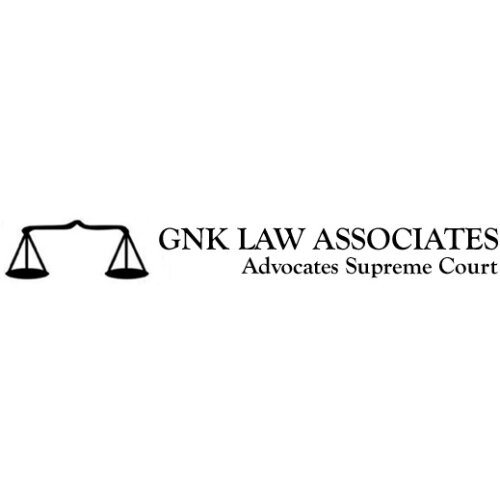Best Intellectual Property Lawyers in Delhi
Share your needs with us, get contacted by law firms.
Free. Takes 2 min.
List of the best lawyers in Delhi, India
India Intellectual Property Legal Questions answered by Lawyers
Browse our 1 legal question about Intellectual Property in India and read the lawyer answers, or ask your own questions for free.
- Can you write a contract for intellectual property
- I am making an App in India but I have no contract. I need to make one
-
Lawyer answer by Shenzhen Yizhou Intellectual Property Operation Co., Ltd.
Dear,You definitely should have a written contract before continuing development - it protects both you and your client by clearly defining ownership of the code, payment terms, delivery schedule, and confidentiality.Yizhou IP & Law can help you draft or review...
Read full answer
About Intellectual Property Law in Delhi, India
Intellectual Property (IP) refers to a branch of law that protects creative works and innovations. In Delhi, India, Intellectual Property law aims to safeguard the rights of individuals or organizations who create or develop unique ideas or inventions. This includes protection of patents, copyrights, trademarks, and designs.
Why You May Need a Lawyer
There are several situations where you may require legal assistance in Intellectual Property matters:
- If you want to register your creative work or invention to ensure exclusive rights
- If you believe someone has infringed upon your IP rights
- If you receive a notice claiming you have violated someone else's IP rights
- If you are facing legal issues related to licensing agreements, contracts, or IP disputes
- If you need guidance on enforcing or protecting your IP rights
Local Laws Overview
In Delhi, India, the key aspects of Intellectual Property laws include:
- Patents: The Indian Patent Act governs the registration and protection of patents, granting exclusive rights to inventors for their inventions.
- Copyrights: The Copyright Act protects original works of literature, music, art, films, software, etc., against unauthorized copying and distribution.
- Trademarks: The Trade Marks Act provides protection for brand names, logos, and distinctive symbols used in trade to identify goods or services.
- Designs: Designs Act offers protection for aesthetic elements of products, ensuring their unique appearance is not copied or imitated.
Frequently Asked Questions
1. Can I patent my invention in Delhi, India?
Yes, you can patent your invention in Delhi, India by filing an application with the Indian Patent Office and fulfilling the patentability criteria, such as novelty, inventiveness, and industrial applicability.
2. How long does a trademark registration last in Delhi, India?
A trademark registration in Delhi, India is initially valid for ten years from the date of filing. It can be renewed indefinitely every ten years by paying the required fees.
3. What is the process for copyright registration in Delhi, India?
Copyright protection in Delhi, India is automatic upon creation of the work. However, to establish evidence in case of infringement, it is advisable to register your copyright with the Copyright Office.
4. What can I do if someone infringes my Intellectual Property rights in Delhi, India?
If your IP rights are infringed in Delhi, India, you can take legal action by filing a lawsuit seeking appropriate remedies, such as injunctions, damages, or even criminal prosecution, depending on the type and severity of the infringement.
5. Are there any alternatives to litigation for resolving IP disputes in Delhi, India?
Yes, there are alternative dispute resolution mechanisms available, such as mediation, arbitration, or negotiation, which can be less time-consuming and more cost-effective compared to traditional litigation. These methods can help parties reach mutually agreed settlements.
Additional Resources
- National Intellectual Property Organization (NIPO) - http://www.nipo.in
- Department for Promotion of Industry and Internal Trade (DPIIT) - https://dipp.gov.in/footers/links/page-view/index.html
Next Steps
If you require legal assistance in Intellectual Property matters in Delhi, India, it is recommended to:
- Gather all relevant documents and evidence related to your case
- Consult with a qualified Intellectual Property lawyer
- Clearly explain your situation and concerns
- Consider the lawyer's advice and discuss the potential outcomes
- Agree on the terms and fees before proceeding
- Provide the necessary instructions and authorize the lawyer to represent you
- Ensure regular communication with your lawyer and follow their guidance throughout the process
Lawzana helps you find the best lawyers and law firms in Delhi through a curated and pre-screened list of qualified legal professionals. Our platform offers rankings and detailed profiles of attorneys and law firms, allowing you to compare based on practice areas, including Intellectual Property, experience, and client feedback.
Each profile includes a description of the firm's areas of practice, client reviews, team members and partners, year of establishment, spoken languages, office locations, contact information, social media presence, and any published articles or resources. Most firms on our platform speak English and are experienced in both local and international legal matters.
Get a quote from top-rated law firms in Delhi, India — quickly, securely, and without unnecessary hassle.
Disclaimer:
The information provided on this page is for general informational purposes only and does not constitute legal advice. While we strive to ensure the accuracy and relevance of the content, legal information may change over time, and interpretations of the law can vary. You should always consult with a qualified legal professional for advice specific to your situation.
We disclaim all liability for actions taken or not taken based on the content of this page. If you believe any information is incorrect or outdated, please contact us, and we will review and update it where appropriate.
Browse intellectual property law firms by service in Delhi, India
Delhi, India Attorneys in related practice areas.














